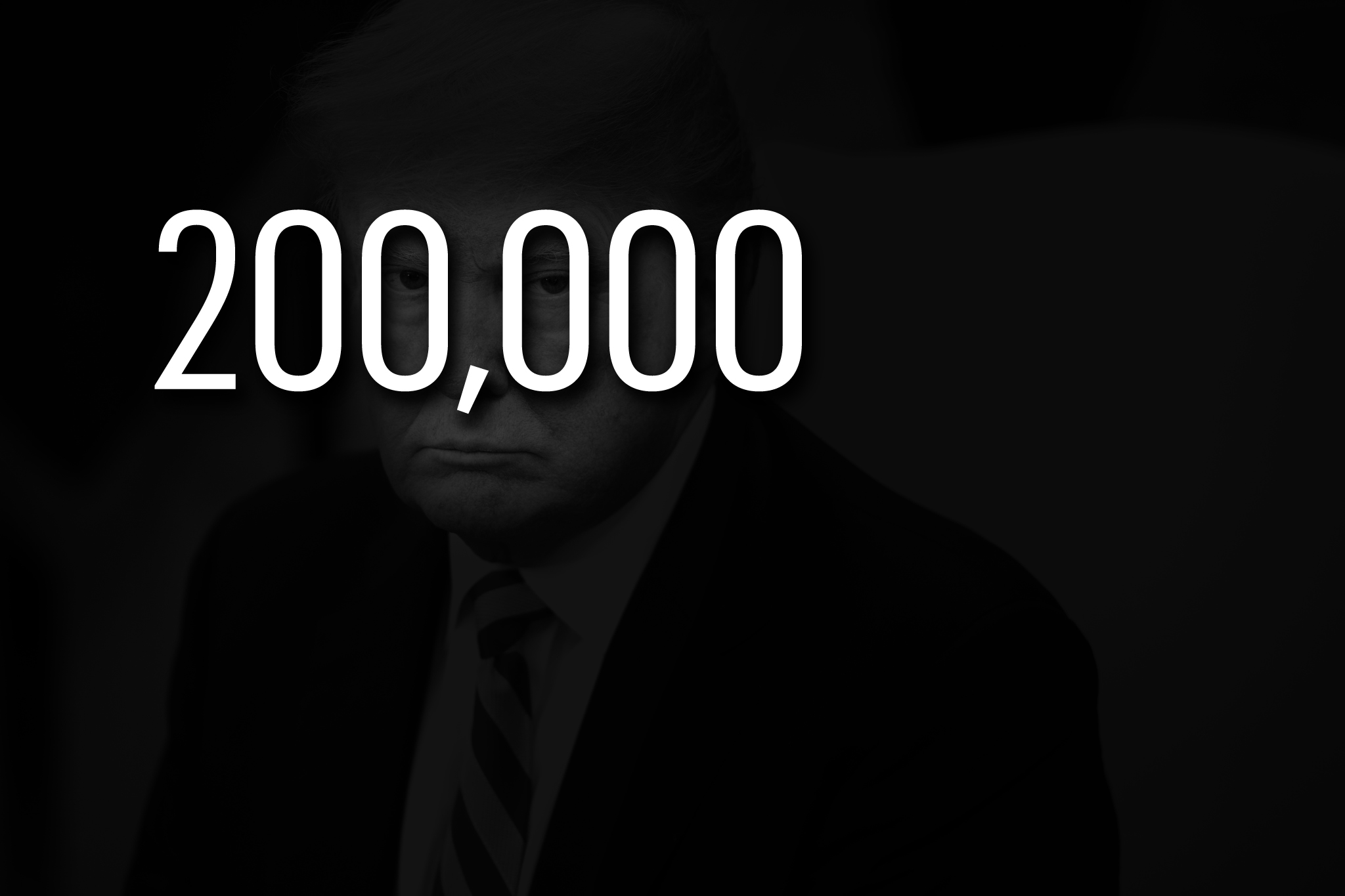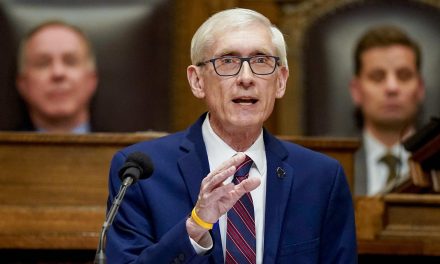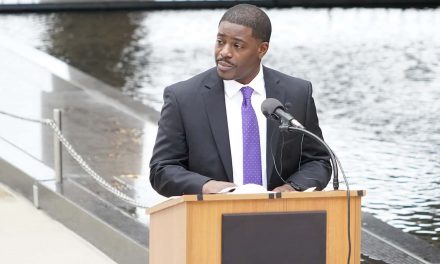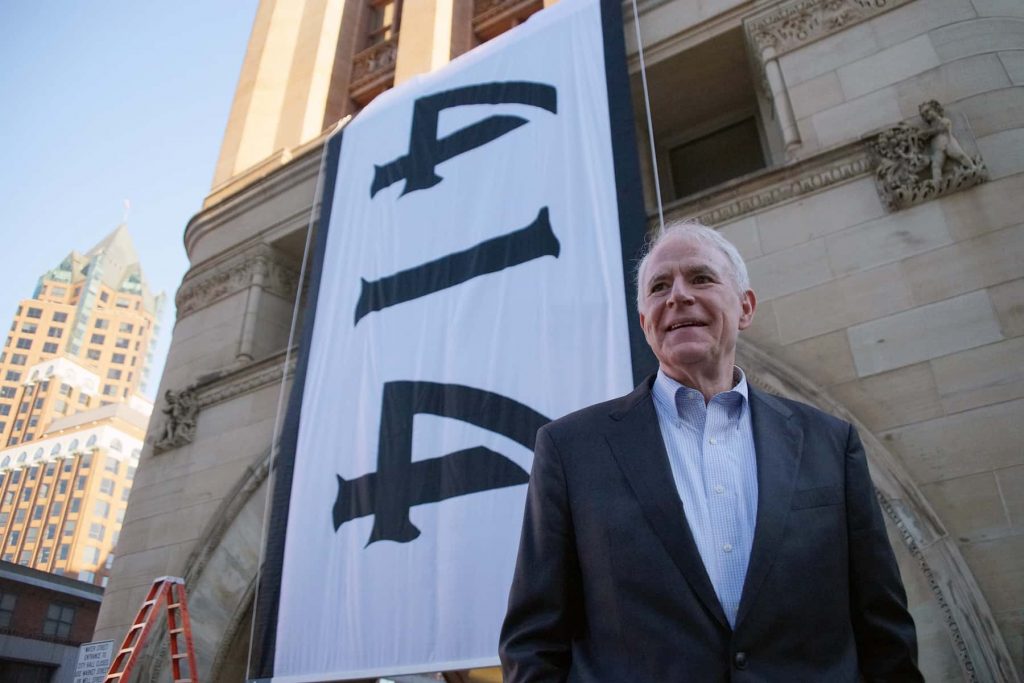
As the coronavirus pandemic began bearing down on the United States in March, President Donald Trump set out his expectations. If the U.S. could keep the death toll between 100,000 to 200,000 people, Trump said, it would indicate that his administration had “done a very good job.”
The number of U.S. deaths is set to clear the outer band of the president’s projections: 200,000, according to the official tally, though the real number is certainly higher. The virus continues to spread and there is currently no approved vaccine. Some public health experts fear infections could spike this fall and winter, perhaps even doubling the death count by the end of the year.
Yet the grim milestone and the prospect of more American deaths to come have prompted no rethinking from the president about his handling of the pandemic and no outward expressions of regrets. Instead, Trump has sought to reshape the significance of the death tally, trying to turn the loss of 200,000 Americans into a success story by contending the numbers could have been even higher without the actions of his administration.
“If we didn’t do our job, it would be three and a half, two and a half, maybe 3 million people,” Trump said Friday, leaning on extreme projections of what could have happened if nothing at all were done to fight the pandemic. “We have done a phenomenal job with respect to COVID-19.”
Trump’s reelection prospects will hinge in part on whether enough voters agree with that assessment. The challenge he faces in making his case, with just weeks before the Nov. 3 election and voting already underway in some states, is clear.
There is little doubt that the death toll in the U.S. has soared past where Trump repeatedly assured the public it would be. In February, when the first coronavirus cases were detected in the U.S., the president said the numbers would be “down to close to zero” within days. In early April, when U.S. officials estimated at least 100,000 people would die from the pandemic even if all conceivable steps were taken against it, Trump suggested the numbers would be lower, saying: “I think we’re doing better than that.”
He has shifted again in recent days, saying that the U.S. remains a success story because some models showed the nation could have 240,000 deaths — a threshold that appears likely to be eclipsed by the end of the year. Well aware of his sluggish standing with voters on the pandemic, Trump has spent recent weeks trying to refocus his race against Democrat Joe Biden on other issues, including promising white suburban voters that he would keep crime in liberal cities from encroaching on their neighborhoods.
After revelations in a new book from journalist Bob Woodward that Trump intentionally played down the seriousness of the virus earlier this year, Biden said of a president’s responsibilities: “You’ve got to level with the American people — shoot from the shoulder,” adding, “There’s not been a time they’ve not been able to step up.”
Trump has falsely insisted he was not downplaying the severity of virus, when he compared it with the seasonal flu and undercut public health officials who pushed for more stringent mitigation efforts. Yet he has repeatedly flouted his own administration’s safety guidelines, rarely wearing a mask himself and holding large campaign events with little evidence of social distancing among his crowds.
With the death toll continuing to climb, Trump has also repeatedly passed up opportunities to serve as a unifying force for communities and families grieving the loss of loved ones. Instead, he has effectively discounted the deaths of Americans who live in Democratic-leaning states, suggesting he has little responsibility for the well-being of those who don’t support him politically.
“If you take the blue states out, we’re at a level that I don’t think anybody in the world would be at,” Trump said recently about the death toll. “Some of the states, they were blue states and blue state-managed.”
It was a jarring statement from an American president, yet one in keeping with Trump’s handling of the pandemic and his presidency. He has long taken a transactional approach to his office, and he spent the opening weeks of the pandemic feuding with Democratic governors in hard-hit states, challenging them to lift restrictions that he deemed harmful to the strong economy he had hoped to ride to a second term.
“He sees everything, including the implications of this terrible virus, in terms of his own political and personal success — ‘How does it affect me and my electability and my popularity,’” said Margaret Susan Thompson, a professor of history and political science at Syracuse University.
The question looming over his presidency now, as Americans mourn 200,000 lives lost, is what the effects of his handling of the pandemic will be on his political future. The answer will come soon enough from his fellow Americans.
Written By
Julіе Pаcе













